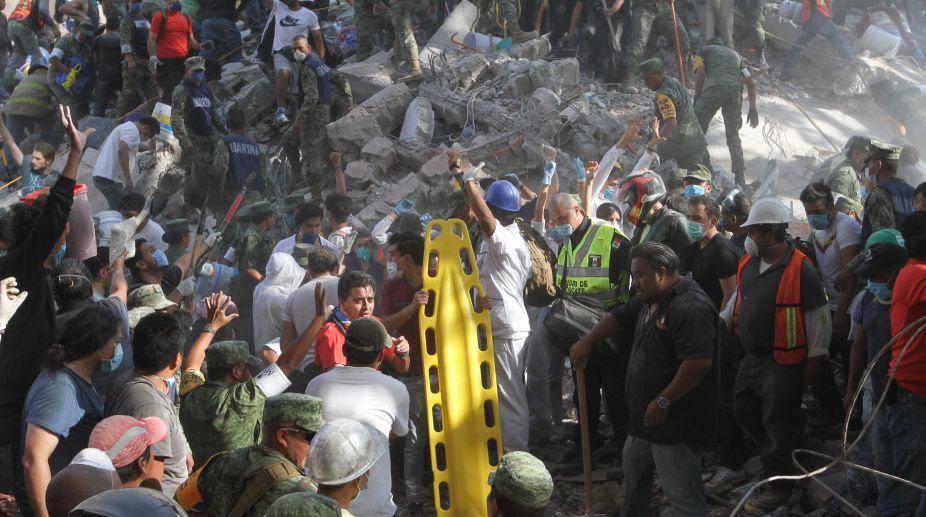4.1 magnitude earthquake shakes east Manipur, no casualties reported
A mild quake, measuring 4.1 on the Richter scale, shook eastern Manipur's mountainous Kamjong district and adjoining areas on Wednesday afternoon, officials said.

Earthquake (Photo: IANS)
The death toll in the devastating 7.3-magnitude earthquake that struck Iran in a region bordering Iraq has reached 540, with thousands of Iranians struggling to cope without basic necessities and making desperate pleas for help.
Rescuers used heavy equipment to dig through the debris of toppled buildings on Tuesday and the government scrambled to get aid to the worst-hit Kermanshah province where hundreds of homes were destroyed, the BBC reported.
Advertisement
The number of victims in Sunday’s quake, which also injured close to 8,000 people, was expected to rise as efforts continued to clear the rubble from 30,000 destroyed homes.
Advertisement
The quake struck about 30 km south of the Iraqi town Darbandikhan, near the north-eastern border with Iran.
Night-time temperatures in Kermanshah province fell close to freezing point for a second night in succession.
Ali Gulani, 42, who lives in the province’s badly-hit town of Qasr-e-Shirin, told BBC that people were burning crates to try to stay warm.
“We are living in a tent and we don’t have enough food or water. You can hear children crying, it’s too cold. They are holding on to their parents to warm themselves – it’s pretty bad,” he complained.
Gulani said there were an average of three strong aftershocks an hour, triggering panic. Close to 200 aftershocks have hit the region since Sunday night. It was one of the strongest on earth this year as well as the deadliest.
Ahoora Niazi, who lives in Sarpol-e Zahab in Kermanshah province, filmed scenes of ruin and posted the videos on the social media.
They included a desperate plea: “Please don’t stop helping. We need water, we need food, like bread, and we need blankets.”
“The weather is turning colder now. No one has anything to keep warm, not even tents. Please help us. I plead with the people of Iran for help,” he said.
President Hassan Rouhani visited Sarpol-e Zahab town and expressed his condolences to the distraught families.
“I call on all governmental and military officials and all NGOs to help the Housing Foundation and do not do separate work. Of course they can plan and work for providing schooling services,” Rouhani said in a statement.
The head of the Revolutionary Guards, Major General Mohammad Ali Jafari, said the immediate need was for tents, water and food.
Search and rescue operations are almost complete while relief operations could take months, Mansoureh Bagheri, director of international operations at the Iranian Red Crescent, told CNN on Tuesday.
More than 500 villages in the region suffered damage. Many of the villages affected by quake were very remote and hard to reach, said Bagheri.
“The priority now is for emergency sheltering and food,” she said. Bagheri estimated that 70,000 people could be affected by the earthquake.
The Iranian Red Crescent Society has deployed 16 response teams, 31 sniffer dog teams, 41 debris removing teams, 48 emergency sheltering teams and nine emergency treatment teams in the hardest-hit areas.
Tuesday was declated a national day of mourning in Iran as officials described the levels of destruction in some parts as “total”.
Advertisement